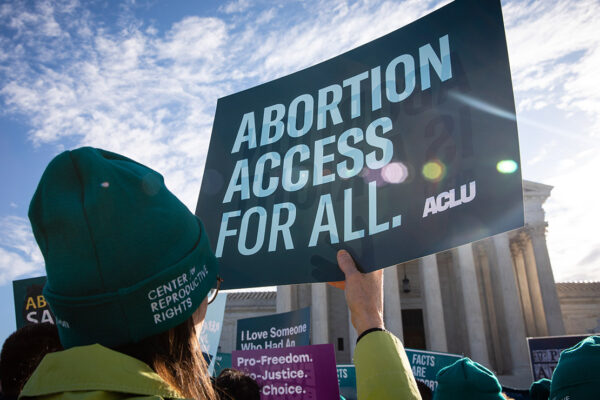Last week, we marked Roe Day, the 48th anniversary of the Supreme Court decision that legalized abortion throughout the United States. We celebrate this milestone while at the same time recognizing that legality alone has never been enough to secure real access to abortion. Indeed, we don’t need to wait for the Supreme Court to act to see a post-Roe world here in the United States. Guamanians are already living it.
Yesterday, we filed a lawsuit in the federal district court in Guam, seeking to restore abortion access to the island. The lawsuit challenges two outdated and medically unnecessary laws that are preventing physicians from using telemedicine to provide medication abortion to their patients in Guam. In effect, these laws are operating as an abortion ban.
Medication abortion is an FDA-approved option for ending an early pregnancy and treating early miscarriage, which has been safely and effectively used in the United States for more than 20 years. More than a decade of research and experience show that the medications used for a medication abortion can safely and effectively be prescribed through telemedicine. Providing medication abortion by telemedicine can not only reduce barriers to abortion care — such as travel, child care, long wait times, and the costs that result from these obstacles — but, for many patients, it also allows them to receive care where they feel safest and have the most privacy, such as their own home. But the right to such care is being denied to people in Guam.
What’s happening in Guam is disturbingly familiar. The ACLU first joined forces with advocates in Guam, led by Chamorro women (the Indigenous people of Guam), to protect abortion access more than 30 years ago. At the time, it was estimated that the majority of OB-GYNs on the island provided abortion services. However, just as we have seen throughout the United States, decades of stigmatizing political rhetoric, harassment, and increasingly restrictive laws have steadily pushed abortion out of reach in Guam.
But there are real and significant ways the fight to protect abortion access in Guam differs from that fight stateside. Guam, the largest and southernmost of the Mariana Islands chain, is located nearly 4,000 miles from Hawai‘i and about 1,500 miles from the Philippines. The last 400 years of Guam’s history have been marked by colonization by Spain, Japan, and the United States. Guam’s current political status is as an unincorporated, organized territory of the United States. Guamanians are U.S. citizens and have the same constitutional right to abortion as anyone else in the United States, but cannot vote in U.S. presidential elections. As with all abortion restrictions, these laws disproportionately harm people of color and people with low incomes: In Guam, it is Chamorro women, the Indigenous people of Guam, who not only carry the unjust weight of centuries of colonialism and imperialism, but also the disproportionate burdens of laws that strip them of the ability to make the best decision for themselves and their families about their pregnancies.
Without meaningful access to abortion on the island, people in Guam are being forced to travel several thousand miles each way to Hawai‘i, for which airfare alone costs more than a thousand dollars, just to get the care they need. That is unconscionable, not to mention unconstitutional — no court has ever upheld a law that imposes such a burden on people seeking abortion care. And during the COVID-19 pandemic, this forced travel carries extra risk and burden. Travel restrictions and quarantines in both Hawai‘i and Guam make it even more difficult to access care. Every day of quarantine escalates the cost of travel, requires more time off work and away from family and children, and makes it all the more difficult to keep one’s abortion decision private. The lack of abortion access also creates unique burdens for U.S. servicemembers stationed on the island — particularly for enlisted women, who live on extremely restricted incomes and are disproportionately people of color — who are already subjected to federal laws designed to push abortion out of reach.
The fight for access to abortion is not just about legality, but also about dignity and humanity. People who live in Guam have the same right not only to constitutionally protected health care, but to that dignity, as anyone else in the United States. We are proud to stand with Chamorro women and people in Guam, and to continue to work alongside them for a world where everyone is able to receive the abortion care they need and create their families without barriers, fear, stigma, or political interference.

